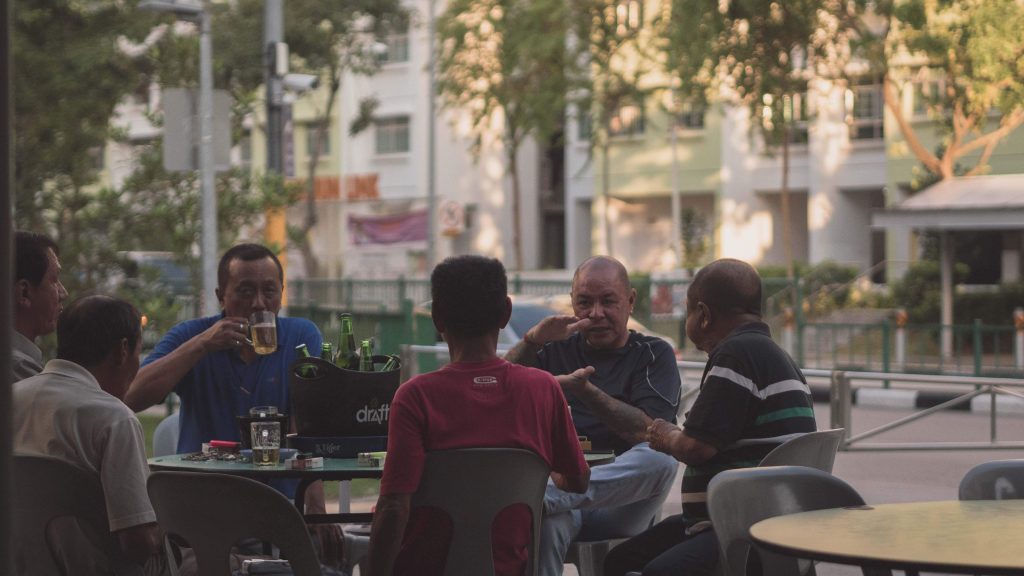Top image: Marisse Caine / RICE File Photo
At the start of the year, 2021 was declared The Year of Celebrating SG Women. This year, the aim is to celebrate the progress and potential of women in society, while improving gender equality.
ADVERTISEMENT
For this initiative, the Ministry of Social and Family Development (MSF) announced that it would organise celebrations and activities to uplift women throughout the year, as well as make legislative reviews.
This conversation was revisited in parliament earlier this week, when MP Leon Perera spoke about the need to remove structural, cultural and psychological barriers to gender equality. Ms He Ting Ru from the Workers Party also spoke about gender equality in parliament, stressing that it is not a women’s issue only, as for gender equality to be achieved, men must be responsible for change as well.
This is a key sentiment reflected in the The Report On Harmful Masculinity Norms, released last week by The Healthy Masculinity Project, a Singaporean initiative.
“Since the government had started on a gender equality review, we decided to contribute a ground-up report to it,” the group told RICE. “It’s a tangible goal despite the short time frame, and hopefully this will help to grow a wider conversation on these issues.”
Here are eight takeaways from the report:
1. Even ‘healthy’ masculine traits can be unhealthy
Harmful masculinity norms can be broadly defined as the way men act as a result of societal pressures that teach them to perform masculinity in certain ways. Prevalent examples of this are the notions that real men don’t cry and that men don’t talk about feelings because they are strong. Others include exhibiting power over women, dominance, and a propensity for violence.
However, the survey by The Healthy Masculinity Project found that there are some examples of unhealthy masculinity that go unnoticed. These are often traits that are conventionally considered healthy or normal, like self-reliance, risk-taking, pursuit of status and work as purpose and identity. While these are not necessarily unhealthy, they shouldn’t be expected of individuals because of their gender.
2. Harmful masculinity is directly linked to a rise rape and assault cases
The report highlights that an average of 1,190 cases of ‘outrage of modesty’ have been reported annually between 2016 to 2020, an increase of 24% from 2011 to 2015. Rape cases have also been increasingly reported, from 162 in 2015, to 282 in 2019.
The World Health Organisation’s guidelines on sexual violence underline that sexual crimes are about asserting power and control over victims. When harmful masculinity traits like exhibiting power and dominance over women are prevalent, sexual crimes will be too.
We can see this play out with the way sexual slurs are often used colloquially to assert power over women and sexual minorities. Most respondents of the report said that such behaviour is prevalent in schools, social settings, and in National Service (NS), and almost half of the respondents also experienced this at work and at home.

3. As environments that shape the Singaporean male identity, school and NS should be addressed
ADVERTISEMENT
School and National Service (NS) are the two key environments where Singaporean men form their identity as males. However, the report suggests that these don’t currently provide opportunities for the healthy modeling of masculinity norms.
A respondent in the report shared that “hyper-masculinity was presented as the default model of masculinity” in NS, and that traits such as dominance are heavily celebrated. Another respondent spoke about the way misogynistic language prevalent in NS often belittled women as the weaker gender and regarded them as prizes.
Similarly in school, and especially at younger ages, boys seek peer acceptance. And because of the gap in emotional and physical maturity, boys may act out aggressively, victimize others, bully others, or be bullied themselves. This impacts the way they develop an understanding of their identity, gender roles and masculinity.
It’s in this stage that a robust sex-ed program is most vital. While sex-ed in schools has changed, for example by now also teaching students how to protect themselves from crimes such as cyber flashing and voyeurism, it is not enough. To get to the root of the issue, boys need to be guided in understanding how internalised harmful notions of masculinity are often the cause of sexual and cyber crimes.
4. NS Should Be Gender Neutral
Serving the nation is an opportunity to foster a sense of belonging and national identity, which can be valuable to both men and women alike. Making NS gender neutral allows women equal participation and responsibility to the nation, and in the long run erodes the male-dominated environment that allows harmful masculinity norms to fester. Having both men and women serve NS would also help practically in the long-run as Singapore’s population shrinks.

5. Toxic masculinity in homes has long term effects on children
In the report, Mei-Ling, a 32-year-old female postgraduate student, shares how she grew up exposed to subtle forms of toxic masculinity at home. She described her father as an “angry person” who rarely had deeper interactions with his children, and who would often belittle and disrespect his wife.
Because of the way her father would physically abuse Mei-Ling’s brother for not performing well in school, he grew up with anger management issues himself.
Mei-Ling ended up internalising that physical abuse was ‘tough love’ and ‘strict parenting.’ This led to her getting into a toxic relationship in her early twenties in which her ex-boyfriend was verbally abusive, manipulative, and controlling over most aspects of her life.
6. Pornography is directly linked to harmful masculinity and sexual assault
As Andrew da Roza, an Addictions Psychotherapist at Promises Healthcare told us recently, “If we add the lack of adequate sex education, with socially perpetuated toxic masculinity, we have a recipe for disaster.” He added that without appropriate sex education, children and teens will turn to porn for their “education,” which we know doesn’t offer a realistic or respectful form of sex-ed.
The report says that young girls and boys are often exposed to adult porn before even having a first kiss. But because porn often features unrealistic scenarios, ignores consent, and often plays with the idea of rape and incest, it creates a distorted idea of intimacy in their minds.
On top of that, in predominantly male environments, these notions are further normalised by toxic masculinity and the use of slurs and expressions that degrade women.
While “porn literacy” may sound scandalous to some, it is crucial if we want young men to be able to process what they see online and not reflect it in their own relationships.

7. Toxic masculinity can lead to suicide
Over 70% of all suicides in Singapore were found to be males. Specific studies on the correlation between genders norms and mental health have not been conducted in Singapore, but studies abroad suggest that there is a correlation. An Australian study by Prof Jane Pirkis and four other contributors examined “whether endorsement of dominant masculinity norms heightens the risk of or is protective against suicidal thinking.” Data collected from over 13,000 men found that ‘self-reliance,’ a norm of masculinity, was a risk factor for suicidal thinking.
8. We need more studies on masculinity
Around the world, masculinity is starting to be studied more in depth. For example, four UN agencies (UNDP, UNFPA, UN Women and UNV) carried out the UN Multi-country Study on Men and Violence in Asia and the Pacific from 2010 to 2013 to study the correlation between masculinity norms and gender-based violence. The study, which included China and Indonesia, found that rape was commonly motivated by a sense of entitlement.
Many studies have been conducted on women and gender equality, but not much has been done on men and masculinity in Singapore. To fully understand how we can achieve gender equality, more research on this is necessary.
Tell us what you thought of this piece at community@ricemedia.co. If you haven’t already, follow RICE on Instagram, Spotify, Facebook and Telegram.






